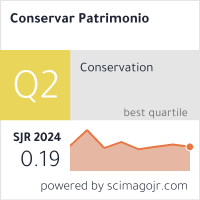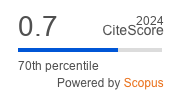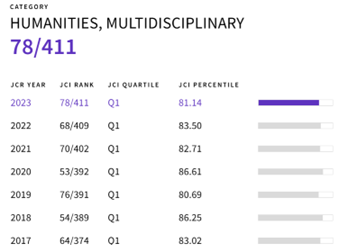Materials characterization of albumen prints from Calouste Gulbenkian´s memories album
DOI:
https://doi.org/10.14568/cp26220Keywords:
Albumen prints, Album, Calouste Gulbenkian, ED-XRF, FTIR, RamanAbstract
The present investigation gathers the results of the characterization and scientific analysis of a memories album with albumen prints from the end of the 19th century, belonging to the art collector Calouste Sarkis Gulbenkian. The study has focused on different analytical techniques, such as optical microscopy (OM), energy dispersive X-ray micro-fluorescence (ED-XRF), Fourier transform infrared spectroscopy with attenuated total reflectance (ATR-FTIR), Raman microspectroscopy (μ-Raman) and Fourier transform infrared microspectroscopy (μ-FTIR). The use of these different and complementary techniques allowed us to collect important information about this album, namely some organic and inorganic components present in the photographic prints and its conservation condition, data about its manufacture and to make an approximation to its historical dating.
Downloads
References
Perdigão, J. A., Calouste Gulbenkian, Coleccionador, 3ª ed., Fundação Calouste Gulbenkian, Lisboa (2006).
Guerrero García, A., La fotografía como elemento de colección y como herramienta de un coleccionista: álbumes de memorias, souvenirs y reproducciones fotográficas en la documentación de arte de Calouste Gulbenkian, Disertación doctoral, Departamento de Historia del Arte, Universidad de Murcia (2021), http://hdl.handle.net/10201/111586.
Guerrero García, A., ‘Coleccionismo fotográfico: una investigación a través de la conservación de los álbumes de Calouste Gulbenkian y sus relaciones con Europa y Medio Oriente’, in Actas II Congreso Internacional Coleccionismo, Mecenazgo y Mercado Artístico, Universidad de Sevilla (2018) 95-110.
Lavedrine, B., Reconocer y conservar las fotografías antiguas, Comite des Travaux Historiques, Paris (2010).
Rutherson, J., ‘Victorian album structures’, The Paper Conservator 23(1) (1999) 13-25.
Reilly, J., The albumen and salted paper book. The history and practice of photographic printing 1840 – 1895, Light Impressions Rochester, New York (1980).
Stulik, D.; Kaplan, A., ‘Albumen’, in The Atlas of Analytical Signatures of Photographic Processes, Getty Conservation Institute, Los Angeles (2013).
Doncea, S.; Ion, R. M.; Fierascu, R.; Bacalum, E.; Bunaciu, A.; Aboul-Enein, H. Y., ‘Spectral methods for historical paper analysis: composition and age approximation’, Instrumentation Science & Technology 38(1) (2010) 96-106, https://doi.org/10.1080/10739140903430271.
Young, E., The salt print manual. Salt & albumen photographic printing processes, Gold Street Studios, Victoria (2011).
Reilly, J., ‘The manufacture and use of albumen paper’, The Journal of Photographic Science. 26 (1978) 156-161.
Reilly, J., ‘The history, technique and structure of albumen prints’,in AIC Preprints (1980) 93-98.
Messier, P.; Vitale, T., ‘Cracking in albumen photographs: an ESEM investigation’, Journal of Microscopy Research and Technique 25(5-6) (1993) 374-383, https://doi.org/10.1002/jemt.1070250505.
Messier, P.; Vitale, T., ‘Effects of aqueous treatment on albumen photographs’, Journal of the American Institute for Conservation 33 (1994) 257-278, https://doi.org/10.1179/019713694806083023.
Stulik, D.; Kaplan, A., ‘Application of a Hanheld XRF spectrometer in research and identification of photographs’, in Handheld XRF for Art and Archeology, ed. A. N. Sugar, Leuven University Press, Leuven (2013) 75-130.
Stulik, D.; Kaplan, A., ‘An example of complex composite materials and processes: photography’, in Scientific methods and cultural heritage: an introduction to the application of materials science to archaeometry and conservation science, ed. G. Artioli, University Press, Oxford (2010) 419-433.
Modica, A.; Alberghina, M.; Brai, M.; Bruno, M.; Bella, M. L. D.; Fontana, D.; Tranchina, L., ‘XRF analysis to identify historical photographic processes: the case of some Interguglielmi Jr.’s images from the Palermo Municipal Archive’, Radiation Physics and Chemistry 135 (2017) 76-80, https://doi.org/10.1016/j.radphyschem.2017.02.026.
Čechák, T.; Kopecká, I.; Trojek, T.; Štanzel, T.; Bártová, H. ‘Application of X-ray fluorescence in an investigation of photographic heritage’, Radiation Physics and Chemistry 116 (2015) 8-13, https://doi.org/10.1016/j.radphyschem.2015.05.015.
McClelland, A.; Bulat, E.; Bernier, B.; Murphy, E. L., ‘Specular reflection FTIR: a non-contact method for analyzing coatings on photographs and other cultural materials’, Journal of American Institute of Conservation 59(2) (2019) 123-136, https://doi.org/10.1080/01971360.2019.1660546.
Ricci, C.; Bloxham, S.; Kazarian, S. G., ‘ATR-FTIR imaging of albumen photographic prints’, Journal of Cultural Heritage 8 (2007) 387-395, https://doi.org/10.1016/j.culher.2007.07.002.
Nieto Villena, A.; Martinez, J. R.; de la Cruz-Mendoza, J. A.; Valcarcel Andrés, J. C.; Ortega-Zarzosa, G.; Solbes-Garcia, A.;Vazquez-Martinez, E., ‘Atomic force microscopy as a tool for binder identification in ancient photographic processes’, Surface and Interface Analysis 50(4) (2018) 496-505, https://doi.org/10.1002/sia.6408.
Grabska, J.; Beć, K. B.; Huck, C. W., ‘Novel near-infrared and Raman spectroscopic technologies for print and photography identification, classification, and authentication’, NIR news 32(1-2) (2021) 11-16, https://doi.org/10.1177/09603360211003757.
Puškárová, A.; Bučková, M.; Habalová, B.; Kraková, L.; Maková, A.; Pangallo, D., ‘Microbial communities affecting albumen photography heritage: a methodologycal survey’, Scientific reports 6 (2016) 20810, https://doi.org/10.1038/srep20810.
Martín, E., ‘Técnicas no destructivas para el estudio de los materiales fotográficos’, Moleqla 20 (2015) 37-39.
Del Egido, M.; Martín de Hijas, C.; Juanes, D., ‘Aplicación de métodos de análisis sin toma de muestra en fotografía histórica. Estudios de una colección procedente del Museo Sorolla’, Bienes Culturales Revista del Instituto de Patrimonio Cultural de España 8 (2008) 147-156.
Neiva A. C.; Marcondes, M. A.; Pinto, H.P.F.; Almeida, P. A. D., ‘Analysis of photographs and photo-paintings by energy dispersive X-ray fluorescence spectroscopy’, Radiation Physics and Chemistry 95 (2014) 378-380, https://doi.org/10.1016/J.RADPHYSCHEM.2013.03.028.
Herrera Garrido, R., ‘Estudio histórico y análisis químico por fluorescencia de rayos X de la colección de placas de linterna de Alfred Stieglitz en el Museo George Eastman House’, Pátina 17-18 (2014) 261-278.
Del Egido, M.; Juanes, D.; Bueso, M., ‘Consideraciones en torno a los estudios científicos aplicados a la conservación del patrimonio cultural’, in La ciencia y el arte IV, ed. Ministerio de Cultura y Deporte de España - IPCE, Madrid (2013) 7-24.
Marucci, G.; Monno, A.; Van der Werf, I. D., ‘Non invasive micro-Raman spectroscopy for investigation of historical silver salt gelatin photographs’, Microchemical Journal 117 (2014) 220-224, https://doi.org/10.1016/j.microc.2014.07.001.
Vila, A.; Centeno, S. A.; Barro, L., ‘Characterization of unprocessed historic platinum photographic papers by Raman, FTIR and XRF’, Microchemical Journal 114 (2014) 8-15, https://doi.org/10.1016/j.microc.2013.11.016.
‘Cotton’, in IRUG Infrared and Raman users group spectral database, Academy of Fine Arts Vienna, http://www.irug.org/jcamp-details?id=5236 (acceso en 2019-07-20).
‘Fiber Reference Image Library (FRIL)’, in Cameo Materials Database, Museum of Fine Arts, Boston, http://cameo.mfa.org (acceso en 2019-07-21).
‘Raman Spectroscopy’, in ColourLex, https://colourlex.com/project/raman-spectroscopy/ (acceso en 2019-07-21).
Enyeart, L.; Anderson, A. B.; Perron, S. J.; Rollins, D. K.; Fernando, Q., ‘Non- destructive elemental analysis of photographic paper and emulsions by X- ray fluorescence spectroscopy’, History of Photography 7(2) (1983) 99-112, https://doi.org/10.1080/03087298.1983.10442764.
Cattaneo, B.; Chelazzi, D.; Giorgi, R.; Serena, T., ‘Physico-chemical characterization and conservation issues of photographs dated between 1890 and 1910’, Journal of Cultural Heritage 9(3) (2008) 277-284, https://doi.org/10.1016/j.culher.2008.01.004.
Eastaugh, N.; Walsh, V.; Chaplin, T.; Siddall, R., The pigment compendium. A dictionary of historical pigments, Elsevier Butterworth-Heinemann, Amsterdam (2004).
Botti, L.; Ferro, D.; Impagliazzo, G.; Placido, M.; Residori, L.; Ridolfi, S.; Ruggiero, D., ‘Analisi di fluorescenza ai raggi X di stampe fotografiche all´albumina appartenenti all´Archivio fotográfico della Pinacoteca di Brera’, in Indagini scientifiche e metodi di restauro, eds. L. Residori y L. Botti, MIBAC, Roma (2008) 201-213.
The photographic news: a weekly record of the progress of photography, IX (331), eds. Wharton Simpson, G.,M.A., F.S.A., Cassell, Peter and Galpin, London, (1856) 460-461.
Travis, A. S., ‘Perkin's mauve: ancestor of the organic chemical industry’, Technology and Culture 31(1) (1990) 51-82, https://doi.org/10.2307/3105760.
Conti, C.; Botteon, A.; Colombo, C.; Realini, M.; Matousek, P., ‘Fluorescence suppression using micro-scale spatially offset Raman spectroscopy’, Analyst 141(18) (2016) 5374-5381, https://doi.org/10.1039/C6AN00852F.
Vila, A.; Centeno, S. A., ‘FTIR, Raman and XRF identification of the image materials in turn of the 20th century pigment-based photographs’, Microchemical Journal 106 (2013) 255-262, https://doi.org/10.1016/j.microc.2012.07.016.
Comnea-Stancu, I. R.; Wieland, K.; Ramer, G.; Schwaighofer, A.; Lendl, B., ‘On the identification of rayon/viscose as a major fraction of microplastics in the marine environment: discrimination between natural and manmade cellulosic fibers using Fourier Transform Infrared Spectroscopy’, Applied Spectroscopy 71(5) (2017) 939-950, https://doi.org/10.1177/0003702816660725.
Buzit-Tragni, C. B., 'The use of ultraviolet-induced visible fluorescence for examination of photographs', (Final Dissertation) A. W. Mellow Fellow, Advanced Residency Program in Photograph Conservation, George Eastman Museum Image Permanence Institute, Rochester (2005).

Downloads
Published
How to Cite
License
This work is distributed under a Creative Commons Attribution License (CC BY-NC-ND 4.0) which permits use, distribution, and reproduction in any medium following no commercial or derivatives, provided the original author and source are credited.
Copyright remains with the authors.






